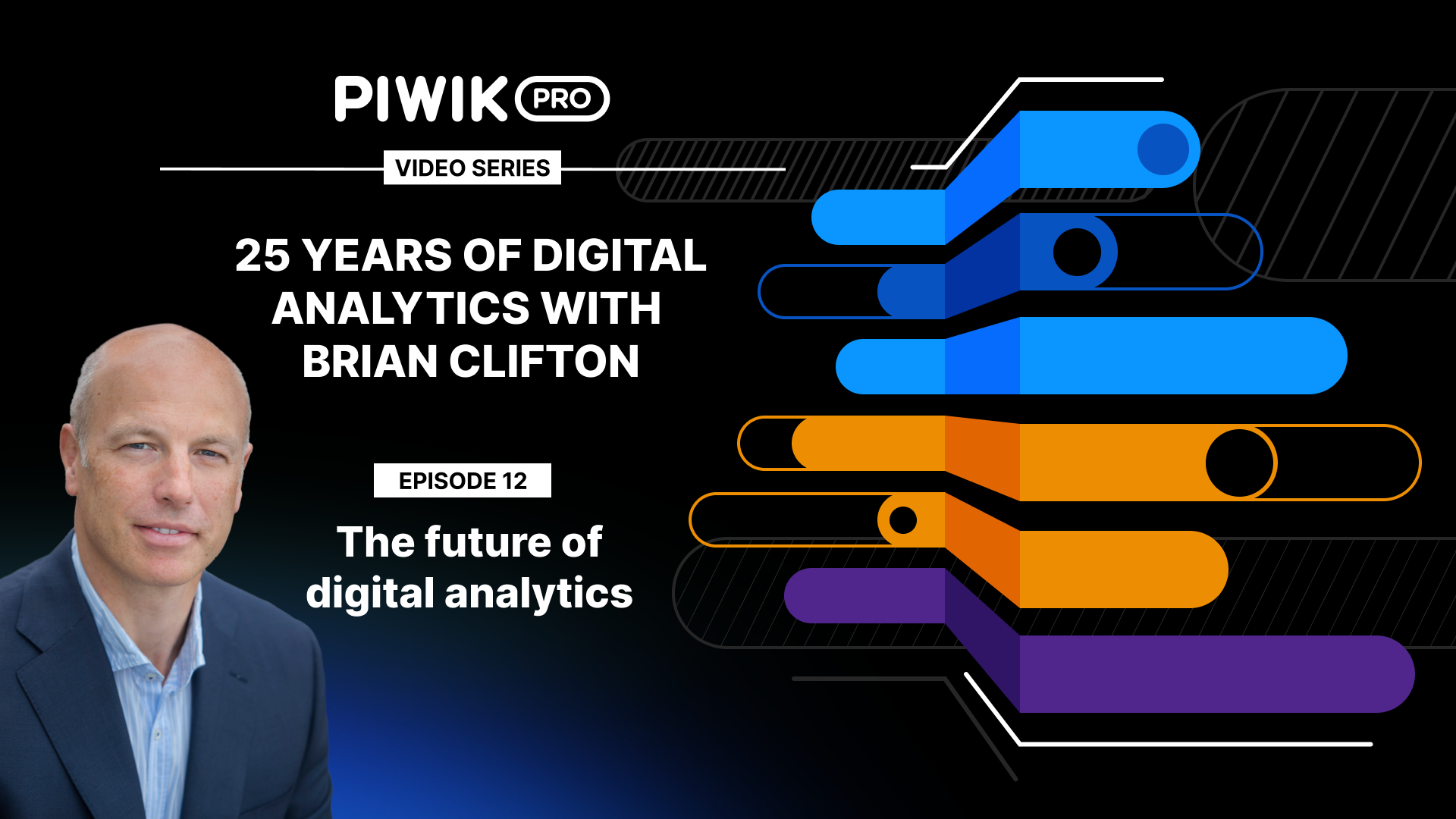When Universal Analytics was phased out in 2023, and GA4 rolled out with complexity, many European organisations were forced to rethink how they measure success. For more and more, the solution is clear: use analytics built for Europe, by Europe.
Why sovereignty matters
Data sovereignty isn’t just a buzzphrase. Under GDPR and the Schrems II ruling, sending personal data outside the EU draws sharp scrutiny.
So organisations are shifting. They want to collect, store, and process analytics data entirely within Europe. But it’s not just about geography. It’s also about who holds control: the legal jurisdiction, the infrastructure, and the company’s ownership.
“You can store data in the EU, but if the provider is subject to foreign laws, your sovereignty ends at the login screen. Our aim with Verified Data is to help organizations master data sovereignty by mapping every collection tool deployed on their websites.”
Brian Clifton, Digital analytics and privacy expert
The move away from GA4
In marketing and IT teams across Europe, a quiet migration is underway. Many organisations aren’t just switching tools for compliance — they’re doing it for control.
Options like Piwik PRO, Matomo, and other EU-based platforms are gaining traction. Public agencies, energy companies, healthcare sector, and media outlets — especially in the Nordics — are uneasy with data pipelines routing through U.S. infrastructure. In their view, EU-native stacks don’t just check the compliance box — they hand back control.
Ethical analytics: Beyond consent
Ethics in analytics goes deeper than cookie banners. It’s about designing systems that respect limits and preserve trust.
Organisations are increasingly asking whether their tools nudge them toward profiling, or whether they keep data collection strictly purposeful.
In Finland, for example, behavioural signals in content can qualify as special categories of personal data. If someone reads a page about sexually transmitted disease symptoms, that reveals health information. That kind of exposure makes any data leakage to third parties a serious risk.
Building analytics as a governed asset means more than compliance. It’s about trust. It helps your organisation become more resilient and builds value that lasts.
Yet many organisations struggle to keep purpose limitation in check or spot compliance gaps. Tools like Verified Data, created by Brian Clifton, can help. They automate key audit checks — one tool reviews GA4 configurations, while another scans all data collection tools across your website — making ethical and secure analytics much easier to manage.
“The key implication is that hosting location alone does not guarantee privacy or compliance — understanding sovereignty is essential to manage legal risk, security, and regulatory obligations effectively.
Beyond regulation, customers are becoming more aware and sensitive to the ethical implications of personal data being processed and stored in parts of the world that do not have the same privacy standards as the EU. Data is a part of most organisations’ supply chain. As such, customers expect it to be managed responsibly and used ethically.”
Brian Clifton, Digital analytics and privacy expert
Regulation rising: The DMA, AI act, and the future of tracking
Regulation in Europe is accelerating. The Digital Markets Act (DMA) limits how “gatekeeper” platforms can monetise user data. The AI Act is pushing for transparency in profiling and algorithmic decisions.
In response, analytics tools are adapting. We see more reliance on cookieless tracking, consent mode, and server-side data processing. Platforms like Piwik PRO are evolving to support these shifts and help organisations reduce risk in a changing legal landscape.
It’s worth remembering that server-side tracking isn’t automatically better. Client-side designs, when built with strong governance, can also offer robust control. The real distinction is where the filtering and enrichment occur — relocating logic to servers can improve performance, reduce third-party dependencies, and help avoid unintended data exposure.
Making the strategic choice: Compliance vs. control
Inside your organisation, you’ll see different priorities. Marketing wants insight. Legal wants safety. Security demands control.
Today’s analytics landscape is not binary, it’s a spectrum. Options range from repatriating infrastructure entirely to fully internal data pipelines.
Ask yourself and your team:
- Who really owns your raw analytics data?
- Who controls how and where it’s processed?
- Is your vendor subject to EU law, and what does that mean for your risk?
If you want to know more about our approach to privacy, read our articles:
- “Cookieless future” is just a buzzword – Here is all you need to know about the end of third-party cookies
- What is first-party data and how does it benefit your marketing
- Anonymous tracking: How to do useful analytics without personal data
- HHS guidance on using online tracking technologies: How to make your analytics HIPAA-compliant
Next steps you can take
1. Audit your analytics architecture
Map where data is collected, processed, stored, and under whose legal domain.
2. Review risks and obligations
Check your GDPR, Schrems II, and DMA exposure. Dive into contracts with analytics vendors.
3. Test EU-native platforms
Look into Piwik PRO, Matomo, and others. Focus on full EU hosting, server-side deployment, and real data control.
4. Plan your migration
Define a roadmap toward a compliant, future-ready stack. Align it with your marketing, IT, and legal goals.
Final word: A local, ethical, strategic reset
Europe’s shift away from GA4 is more than a technical upgrade. It’s a strategic realignment.Organisations looking for long-term resilience should view their analytics stack through the lens of sovereignty, ethics, and compliance.
Solutions like Piwik PRO provide the foundation for a privacy-first, legally sound, and trustworthy analytics setup without sacrificing insight or performance.
Now is the time to take ownership of your data strategy, and build analytics capabilities that reflect both your goals and your values.
Take control of your analytics future — explore EU-native, privacy-first solutions that align with your business goals and your users’ trust.












